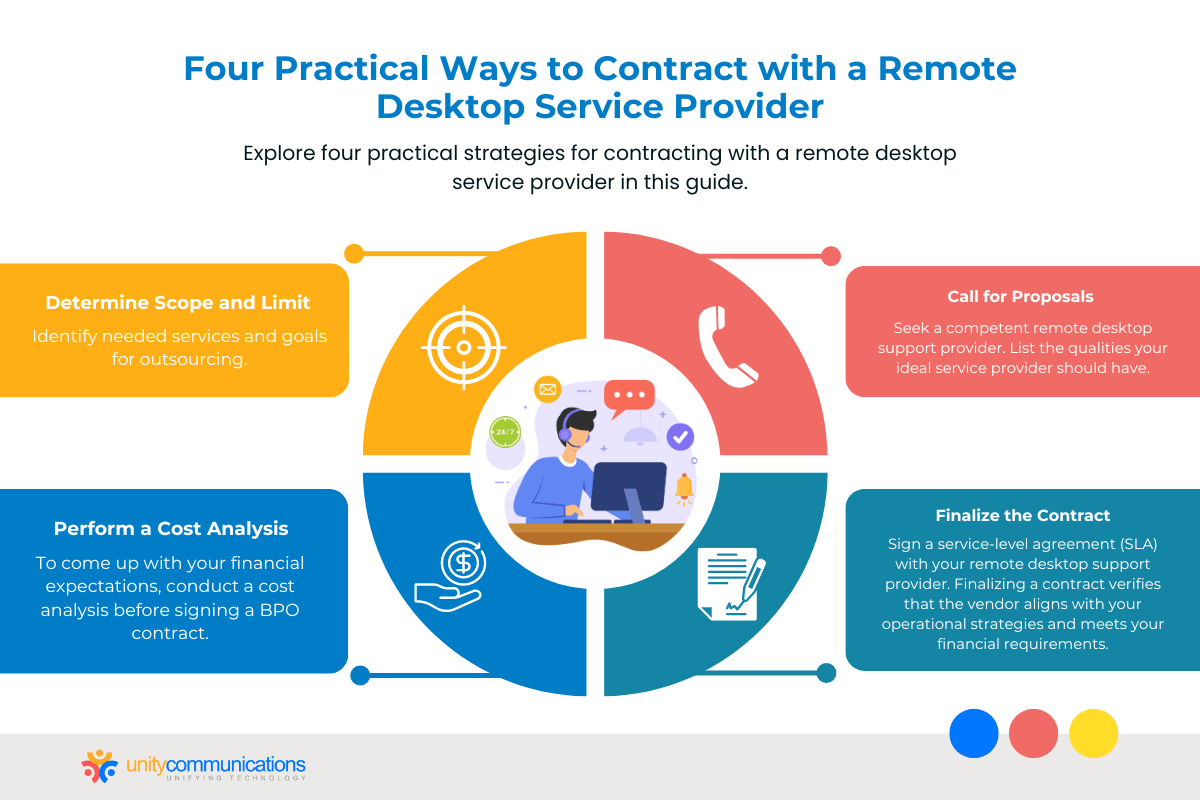Just How to Develop a Successful Group of Remote Professionals
In today's increasingly digital landscape, the capacity to build an effective group of remote specialists is crucial for companies intending to flourish. It is the subtler aspects-- like nurturing a natural business culture and promoting continuous learning-- that can really set a remote group apart.
Specify Clear Objectives and Assumptions
Regularly developing clear goals and assumptions is necessary for the success of a remote team (Remote Professionals). Without these aspects, group participants may experience confusion concerning their roles, obligations, and the overall objectives of the task. This uncertainty can bring about lowered productivity, misaligned initiatives, and inevitably, job failing
To specify clear objectives, it is important to use the clever requirements-- Certain, Quantifiable, Attainable, Pertinent, and Time-bound. This approach makes sure that each goal is distinct and can be properly communicated to all group members. It is essential to straighten individual purposes with the overarching vision of the organization, cultivating a sense of objective and commitment among team members.

Foster Effective Communication

Regular check-ins and team conferences can assist keep a strong interaction circulation, allowing members to share development updates and review any type of obstacles they might experience. It is also crucial to identify that different people may have differing interaction styles. Understanding and fitting these differences can cause more meaningful interactions and an extra natural group dynamic.
In addition, quality is vital in all types of interaction, whether composed or spoken. Motivate employee to verbalize their ideas succinctly and to seek explanation when needed. This approach ensures and lessens misconceptions that every person is on the same web page. By prioritizing efficient communication, remote groups can improve performance, strengthen connections, and create an extra inclusive work environment, inevitably resulting in higher success in accomplishing typical goals.

Use the Right Devices
To support efficient communication within a remote group, it is essential to make use of the right devices that facilitate partnership and streamline operations. The choice of devices can dramatically influence performance, making sure that staff member remain linked and involved regardless of geographical ranges.
Begin by implementing project management software, such as Trello or Asana, to arrange jobs, established target dates, and track progression. This cultivates accountability and offers presence right into each member's contributions. Furthermore, communication systems like Slack or Microsoft Teams use instantaneous messaging abilities, making it possible for real-time discussions and fast decision-making.
Video clip conferencing tools, such as Zoom or Google Meet, are necessary for face-to-face communications, which assist construct relationship and strengthen relationships among staff member. In addition, document sharing and storage space remedies like Google Drive or Dropbox ensure that essential data are editable and available by all staff member, advertising partnership on projects.
Integrating these devices efficiently creates an environment where remote experts can prosper. By choosing the best innovation, companies can improve interaction, boost task management, and inevitably attain their goals more anonymous effectively.
Develop a Solid Firm Culture
Developing a strong company culture within a remote team is crucial for fostering engagement and commitment amongst workers. A distinct culture provides a feeling of belonging and shared objective, which is crucial when group members are distributed across numerous locations. To cultivate this culture, leaders must develop clear worths and expectations that reverberate with workers, making certain that every person comprehends the goal and vision of the organization.
Routine interaction is important in enhancing this society. Using video phone calls, team conferences, and informal check-ins can help preserve connections and promote transparency. Furthermore, commemorating achievements, both tiny and big, strengthens a culture of recognition and admiration.
Urging group cooperation through digital systems not only boosts performance however likewise cultivates interpersonal connections - i thought about this Remote Professionals. Organizing online team-building tasks can additionally enhance bonds amongst staff member, making them feel much more integrated right into the company
Last but not least, it is necessary to listen to staff member comments and adjust as required. By showing that their voices matter, leaders can construct depend on and loyalty, eventually creating a growing remote workplace where staff members really feel valued and involved.
Urge Continual Knowing and Growth
A strong company society lays the groundwork for motivating constant understanding and advancement within a remote team. By cultivating an environment that values growth, companies can encourage workers to enhance their abilities, adapt to brand-new difficulties, and ultimately contribute better to group objectives.
To advertise continuous learning, take into consideration implementing regular training sessions, workshops, and webinars that line up with both individual career goals and business needs. Utilize technology to facilitate access to e-learning platforms, guaranteeing that resources are readily available for remote staff member.
Urge knowledge sharing by establishing mentorship programs and developing forums for employees to exchange understandings and best practices. Awarding and acknowledging team participants who actively take part in discovering initiatives strengthens the relevance of advancement and motivates others to do the same.
In addition, performing routine feedback sessions can aid recognize ability voids and locations for improvement, enabling customized growth strategies. By focusing on continuous click this knowing and advancement, remote groups can grow a culture of innovation, versatility, and resilience, which are essential for navigating the intricacies these days's business landscape.
Verdict
In conclusion, the facility of an effective remote group hinges on the combination of clear objectives, reliable interaction, suitable tools, a durable business society, and continuous understanding opportunities. By lining up private payments with organizational objectives and promoting a setting of openness and cooperation, remote experts can prosper. Remote Professionals. The application of these strategies not just improves team communication yet also drives motivation, inevitably leading to improved efficiency and success in a remote working landscape
It is the subtler elements-- like supporting a cohesive company culture and advertising continual knowing-- that can really set a remote team apart.Reliable communication is the keystone of a thriving remote group. By prioritizing efficient interaction, remote groups can enhance productivity, strengthen relationships, and produce an extra inclusive work setting, eventually leading to better success in achieving usual goals.
Creating a solid company culture within a remote team is necessary for cultivating involvement and loyalty among staff members.In final thought, the facility of an effective remote team hinges on the assimilation of clear objectives, efficient communication, suitable devices, a durable company society, and continuous knowing chances.